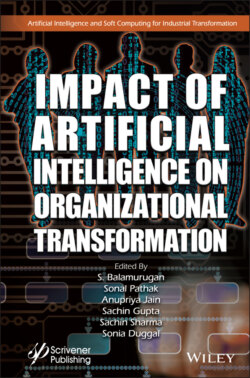Читать книгу Impact of Artificial Intelligence on Organizational Transformation - Группа авторов - Страница 84
3.10 Dark Side of AI
Оглавление“Bad implementation of AI is a bias itself”
“You can have data scientists, but the ability to translate that to actual AI has become a struggle in HR.”
–Sonny Tambe [8]
Like a fairy tale dream, the life is always not a fancy land where all wishes comes true with a spiral of magic band. There always lies a bad in between the good and an evil between the boons, so is the case of AI in HR. As it is said that all the coins have two sides, so the AI is likewise among perusing resumes to grab best applicants more accurately by using the data to have a detailed discussion with the applicant. These are the positivity of the Big Data and AI technology in the HR department. But as the coin has two sides, so is the AI.
Between good and bad, there is a managerial conflict going on in totally believing a machine for “devolving” people management tasks as an HR function or to took up a strategic challenge by totally believing upon it [9]. However, it is debatable issue that can be argued over time (e.g., Wood [10]) that AI proposes a real opportunity for HR to make its mark.
Use of AI in HR is just like embracing algorithm to decide the fate of the organization and employees, which is also like a Disney cartoon with an evil always prowling in background to find its own way to bring harm to otherwise all good.
In terms of ethics of organization, the point arises in terms of permission in regard to the use of AI in organizations. The question pertains in terms of the use of machines in selecting the future success of any organizations. The issue of the trust rises. It is also difficult to judge the ill effects of AI in terms of errors, as in contrast to a human being, so to use the AI, new methodology ought to be determined for AI.
From an organizational psychology viewpoint, there are lots of issues to be handled before implementing the AI in HR In particular, the loss or the gain has to be carefully calculated before the inclusion. Researchers are expecting that, in the next 10–20 years, around 40%–50% of jobs in Germany could be computerized and round 12 % of all the employees will be substituted by means of machines technology like AI, where selection of the employees would also be greatly affected. It would certainly cause fear of job security result in lack of task interest under performance. It would also result in mental stress and negative fitness and poor outcome for the organizations.
In addition, from an economic point of view, AI calls for a big deal of training and skill updating before using it have to be taken care of, and lots of cost involve in regard to most of the companies having a big population of employee.
It would additionally result in mainstream bias via incorrect training. There are various threats, and significant changes also would not take place and loop holes in the transparency can also become a disadvantage. After all, at some factors, the companies may not recognize how constantly and continuously self-schooling AI makes its selections or recommendations.
